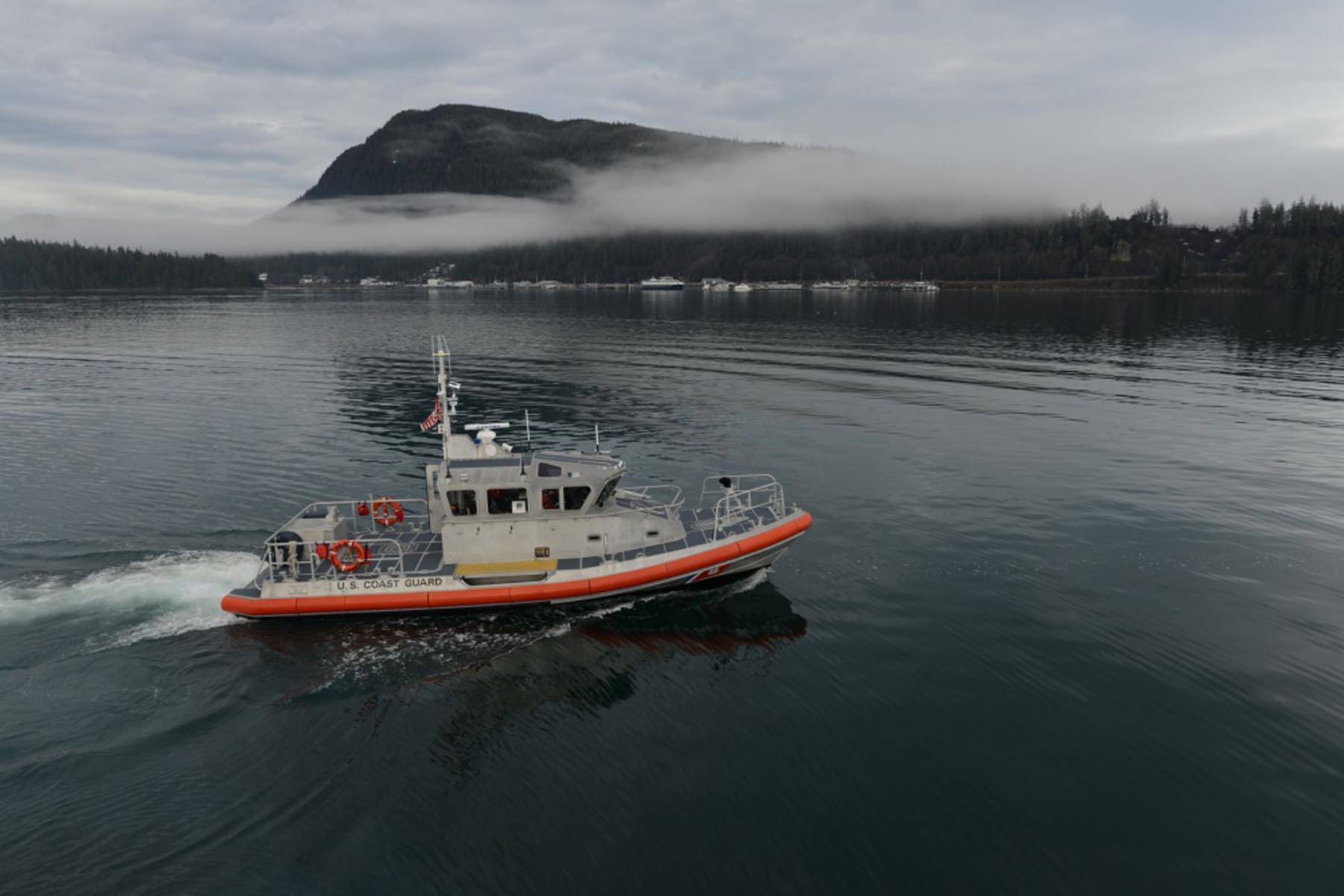Coast Guardsmen from Station Juneau rescued two kayakers from Couverden Island after they became exhausted and darkness was falling on Friday evening.
“They recognized that ‘Oh my gosh, we put ourselves in a really bad spot, and before it gets worse, we’re going to call for help,’ and that was the right thing,” said Petty Officer 1st Class Nate Littlejohn, a Coast Guard public affairs specialist, in a phone interview. “They did the right thing.”
The kayakers beached on Couverden Island and called the Coast Guard for help on a cellphone, Littlejohn said. Station Juneau deployed a 45-foot Response Boat-Medium and returned the kayakers to Statter Harbor. The Coast Guard did not provide the identities of the rescued kayakers, as is their policy.
“They had gone about 23 miles over about a nine-hour period. They were exhausted and they underestimated how much effort it would take to get back,” Littlejohn said. “If you leave out of somewhere on an outgoing tide, it could be a lot harder to come back.”
Neither kayaker was injured, Littlejohn said, but they were underequipped to spend the night outdoors or to call for help. They didn’t have a backup communications device, survival equipment, cold-weather gear or sufficient food or water, according to a Coast Guard release.
Calm waters for now but storms on the horizon for Juneau’s businesses
“Every spring and early summer, we get dozens of calls like this. It’s a really common mistake in the springtime. We’re all excited after being pent up,” Littlejohn said. “People are in a rush to get out, people haven’t done the proper maintenance and proper planning. We’re asking folks to pump the brakes a little and do some proper planning.”
Hypothermia can be a real threat for the unprepared given the often tepid temperatures of Southeast Alaska’s summers, Littlejohn said.
“The big thing is that even in the height of summer, it gets chilly at night. It doesn’t need to be below freezing to get hypothermia, it happens when your body dips below the proper temperature,” Littlejohn said. “That water is always cold. You can find yourself in a situation where it’s windy, you’re wet, and you’re hypothermic in the middle of summer.”
Tips for stating safe
If you’re hurt, in distress or stranded, call 911 immediately if possible, Littlejohn said.
However, the Coast Guard offers advice for how to avoid getting to that point.
“Wearing a lifejacket is the No. 1 thing you can do to increase your chances of survival if you end up in the water,” Littlejohn said. “Hands down. Doesn’t matter if you’re a child or adult.”
Filing a float plan is also a sensible precaution, he said. Writing down where you’re going and when you’re planning to be back, as well as any other details you, before leaving it with someone you trust, can save lives.
Boating sober, checking the weather and tides, making sure safety equipment is present and in working condition and having several forms of communication, are other recommended steps.
Dressing for the weather with proper warming layers, survival gear, and waterproofing is also strongly recommended by the Coast Guard.
• Contact reporter Michael S. Lockett at 757.621.1197 or mlockett@juneauempire.com.

